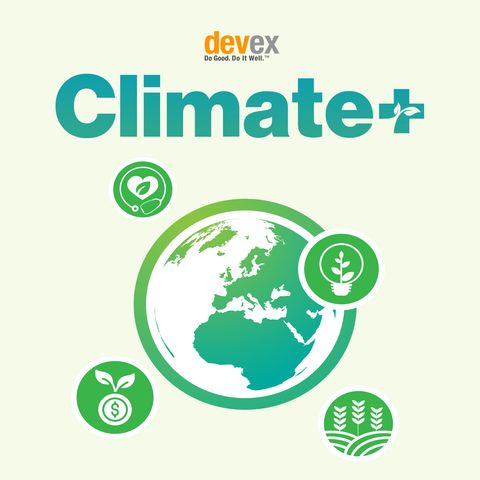Giving Indigenous peoples a seat at the climate table
Dec 11, 2023 ·
27m 41s

Download and listen anywhere
Download your favorite episodes and enjoy them, wherever you are! Sign up or log in now to access offline listening.
Description
For too long, Indigenous peoples were sidelined from the climate negotiations process, despite being among the most directly affected by climate change. That changed at COP 26 in Glasgow, when...
show more
For too long, Indigenous peoples were sidelined from the climate negotiations process, despite being among the most directly affected by climate change. That changed at COP 26 in Glasgow, when for the first time in the history of the UN climate conferences, indigenous representatives were invited to engage directly and share experiences with governments.
Indigenous leaders, however, argue that there is still a long way to go towards having their rights sufficiently recognized. “We see that at least we have some spaces that we occupy, and mechanisms which allow better participation, but we still have to do much more at the national levels,” said Victoria Tauli-Corpuz, former United Nations Special Rapporteur on the Rights of Indigenous Peoples, in the latest episode of Climate +.
Tauli-Corpuz said she and other Indigenous representatives are calling for Indigenous peoples’ rights, territories, and knowledge to be recognized in countries’ national climate mitigation plans (known as nationally determined contributions, or NDCs).
Tauli-Corpuz, who is a member of the Kankanaey Igorot people of the Cordillera Region in the Philippines, also shared her own experiences of being targeted by the government as an environmental defender, why direct access to climate finance is still a pain point for Indigenous communities, and what needs to happen to safeguard Indigenous peoples’ rights in the face of the renewable energy transition.
The Climate + podcast is supported by the World Bank. To learn more about efforts to end poverty on a livable planet, visit: https://www.worldbank.org/en/programs/the-world-bank-at-cop28
show less
Indigenous leaders, however, argue that there is still a long way to go towards having their rights sufficiently recognized. “We see that at least we have some spaces that we occupy, and mechanisms which allow better participation, but we still have to do much more at the national levels,” said Victoria Tauli-Corpuz, former United Nations Special Rapporteur on the Rights of Indigenous Peoples, in the latest episode of Climate +.
Tauli-Corpuz said she and other Indigenous representatives are calling for Indigenous peoples’ rights, territories, and knowledge to be recognized in countries’ national climate mitigation plans (known as nationally determined contributions, or NDCs).
Tauli-Corpuz, who is a member of the Kankanaey Igorot people of the Cordillera Region in the Philippines, also shared her own experiences of being targeted by the government as an environmental defender, why direct access to climate finance is still a pain point for Indigenous communities, and what needs to happen to safeguard Indigenous peoples’ rights in the face of the renewable energy transition.
The Climate + podcast is supported by the World Bank. To learn more about efforts to end poverty on a livable planet, visit: https://www.worldbank.org/en/programs/the-world-bank-at-cop28
Information
| Author | Devex |
| Organization | Devex |
| Website | - |
| Tags |
-
|
Copyright 2024 - Spreaker Inc. an iHeartMedia Company
